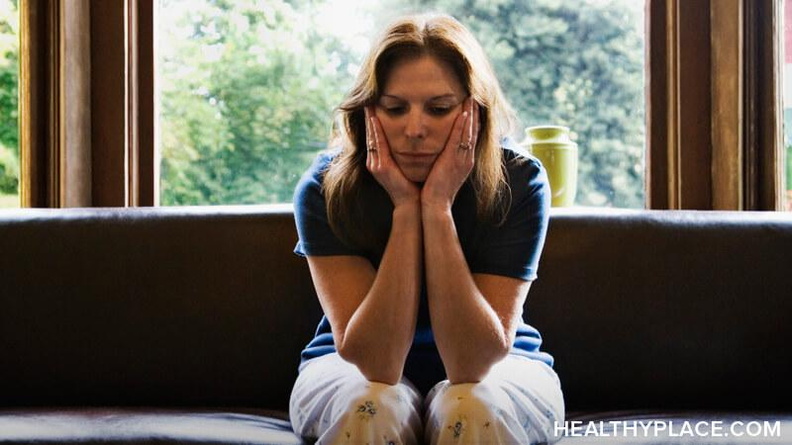
As I recovered from my mental illness, I still had an overwhelming, heavy feeling that I was behind in life. I spent so much time asking myself what I had done wrong when I really should have asked myself, "Why do I feel this way?" Comparing myself to others was a dangerous, harmful game, and at the end of the day, I was the only one keeping score in being behind in life.
Recovery and Reflecting on Being Behind in Life
My birthday is coming up soon; in fact, one week from today, and for some reason, that anniversary always puts me in a funk. The passing of time has always been a scary concept for me, and every birthday, I end up asking myself, "Why am I not further along?"
I like social media. I believe there are genuine, good things that come from it. But there are also undeniable negatives to its usage as well. As I scroll, I see people my age, or even younger, smiling in front of a "sold" sign, propping up a baby on their hip, accepting a work award, or cutting a wedding cake. Long after I put down my phone, I ask myself, "Where are your accomplishments? Why are you behind in life?"
Why Do I Feel So Behind in Life Compared to Everyone Else?
Sometimes, my big accomplishment of the day is getting out of bed or walking around the block. I've never run a marathon. I don't have my own family, and my professional title doesn't start with "senior."
My life has had some bumps. When I was at the height of a long depressive episode and had undiagnosed attention-deficit/hyperactivity disorder, I would let things slip. A great example is with mail. I would get a bill, and it would sit in a pile of mail for months. Eventually, several of my school loans went months overdue. It was terrible for my credit, but I couldn't get myself to care enough to fix it.
It's hard to plan for the future when you can't picture a future. When existing feels hopeless, it feels useless to open a bill, let alone create goals. I was surviving day-to-day, and at that point, it was the best I could do.
The Dangers of Thinking You're Behind in Life
Comparing myself to others never had a positive outcome -- it always made me feel behind in life. It made me feel weak, untalented, and undisciplined, and I am none of those things. But how am I supposed to feel when being fed the highlight reels of everyone else's lives?
I finished eight books this year, but it doesn't matter because my friend finished 12. I tried a new workout class. Cool, but my coworker ran a race. I found an apartment I like. That's great, but an old classmate just bought a house.
It felt like nothing I did was good enough. But good enough to who, to everyone else? I've recognized that I didn't even want some of the things my peers were doing. I've slowly wrapped my head around the fact that the only person I need to be "good enough" for is me.
Everyone struggles, but those with mental illness have it even harder. At some points in my life, working, keeping up relationships, going to the gym, and even getting up were hard. I did my best. And the most important part is that it was my best, and not anyone else's. At the end of the day, that's all that matters.